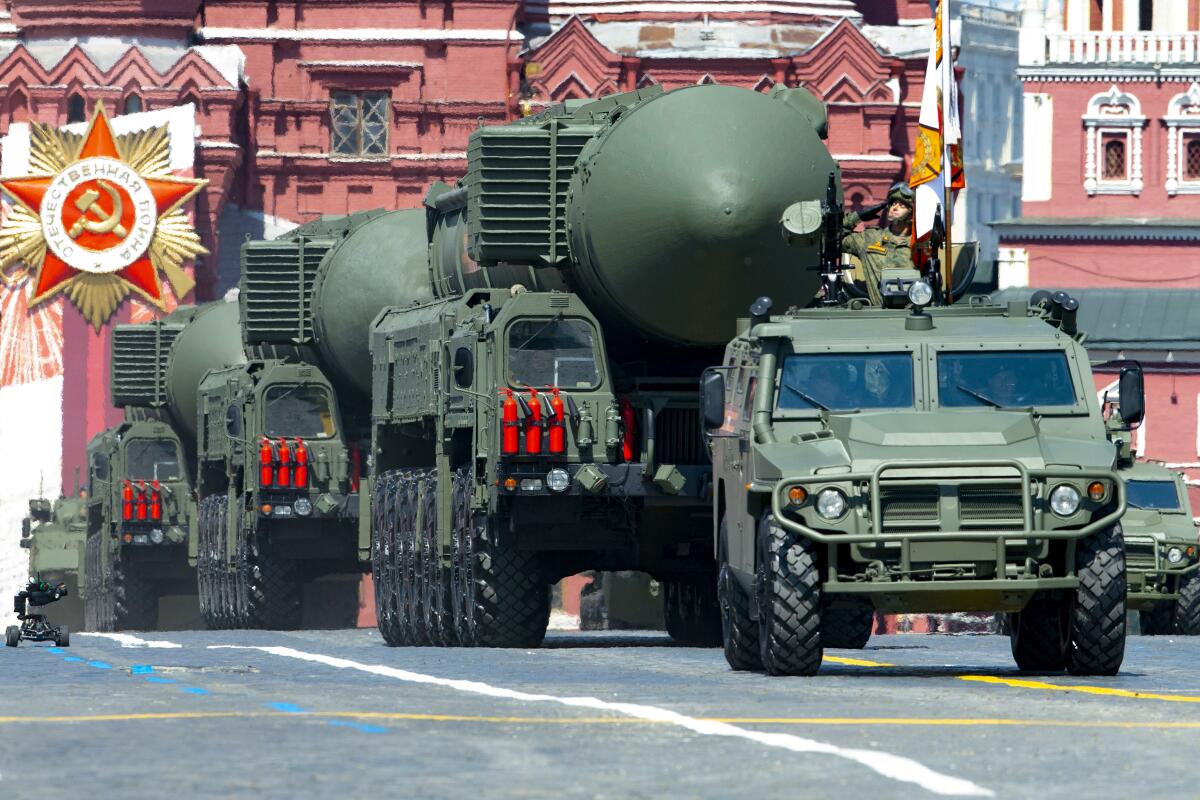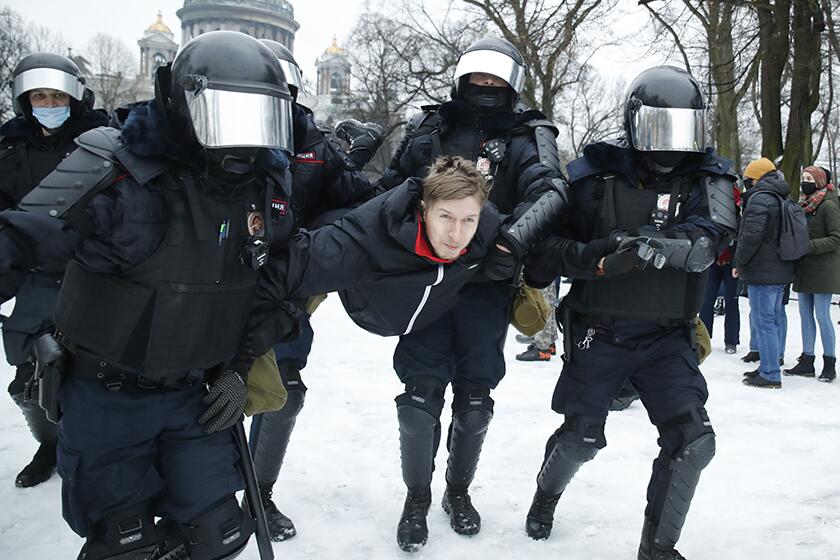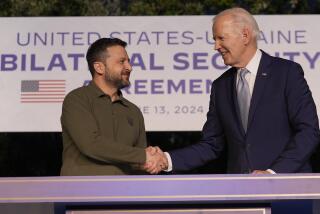Russian lawmakers OK extending last remaining nuclear arms treaty with U.S.

MOSCOW — Russian lawmakers Wednesday quickly approved the extension of the last remaining Russia-U.S. nuclear arms-control treaty, a fast-track action that comes just days before the pact is due to expire.
Both houses of Russia’s parliament voted unanimously to extend the New START treaty for five years, a day after a phone call between President Biden and Russian President Vladimir Putin. The Kremlin said they agreed to complete the necessary extension procedures in the next few days.
Speaking via video link to the World Economic Forum’s virtual meeting, Putin hailed the decision to extend the treaty as “a step in the right direction” but warned of rising global rivalries and threats of new conflicts.
The pact’s extension doesn’t require congressional approval in the U.S., but Russian lawmakers must ratify the move. and Putin has to sign the relevant bill into law. Deputy Foreign Minister Sergei Ryabkov told lawmakers that the extension would be validated by exchanging diplomatic notes once all the procedures are completed.
Upper house Speaker Valentina Matvienko said after the vote that the decision to extend the pact showed that Russia and the U.S. could reach agreement on major issues despite the tensions between them.
New START expires Feb. 5. After taking office last week, Biden proposed extending the treaty for five years, and the Kremlin quickly welcomed the offer.
Russian police arrested thousands of protesters who took to the streets to demand the release of Alexei Navalny, the country’s top opposition figure.
The treaty, signed in 2010 by President Obama and then-Russian President Dmitry Medvedev, limits each country to no more than 1,550 deployed nuclear warheads and 700 deployed missiles and bombers, and envisages sweeping on-site inspections to verify compliance.
Biden indicated during the election campaign that he favored the preservation of the treaty, which was negotiated during his tenure as vice president.
Russia had long proposed extending the pact without conditions or changes, but the Trump administration waited until last year to start talks and made prolongation contingent on a set of demands. President Trump initially insisted that China be added to the treaty, but Beijing bluntly dismissed the idea.
The Trump administration then proposed to extend New START for just one year and also sought to expand it to include limits on battlefield nuclear weapons.
News Alerts
Get breaking news, investigations, analysis and more signature journalism from the Los Angeles Times in your inbox.
You may occasionally receive promotional content from the Los Angeles Times.
The talks stalled, and months of bargaining failed to narrow differences. Negotiations were also marred by tensions between Russia and the U.S., which have been fueled by Moscow’s meddling in the 2016 U.S. presidential election and other irritants.
After both Moscow and Washington withdrew from the 1987 Intermediate-Range Nuclear Forces Treaty in 2019, New START became the only remaining nuclear arms-control deal between the two countries.
Earlier this month, Russia announced that it would follow the U.S. in pulling out of the Open Skies Treaty, which allows surveillance flights over military facilities, to help build trust and transparency between Russia and the West.
More to Read
Sign up for Essential California
The most important California stories and recommendations in your inbox every morning.
You may occasionally receive promotional content from the Los Angeles Times.











